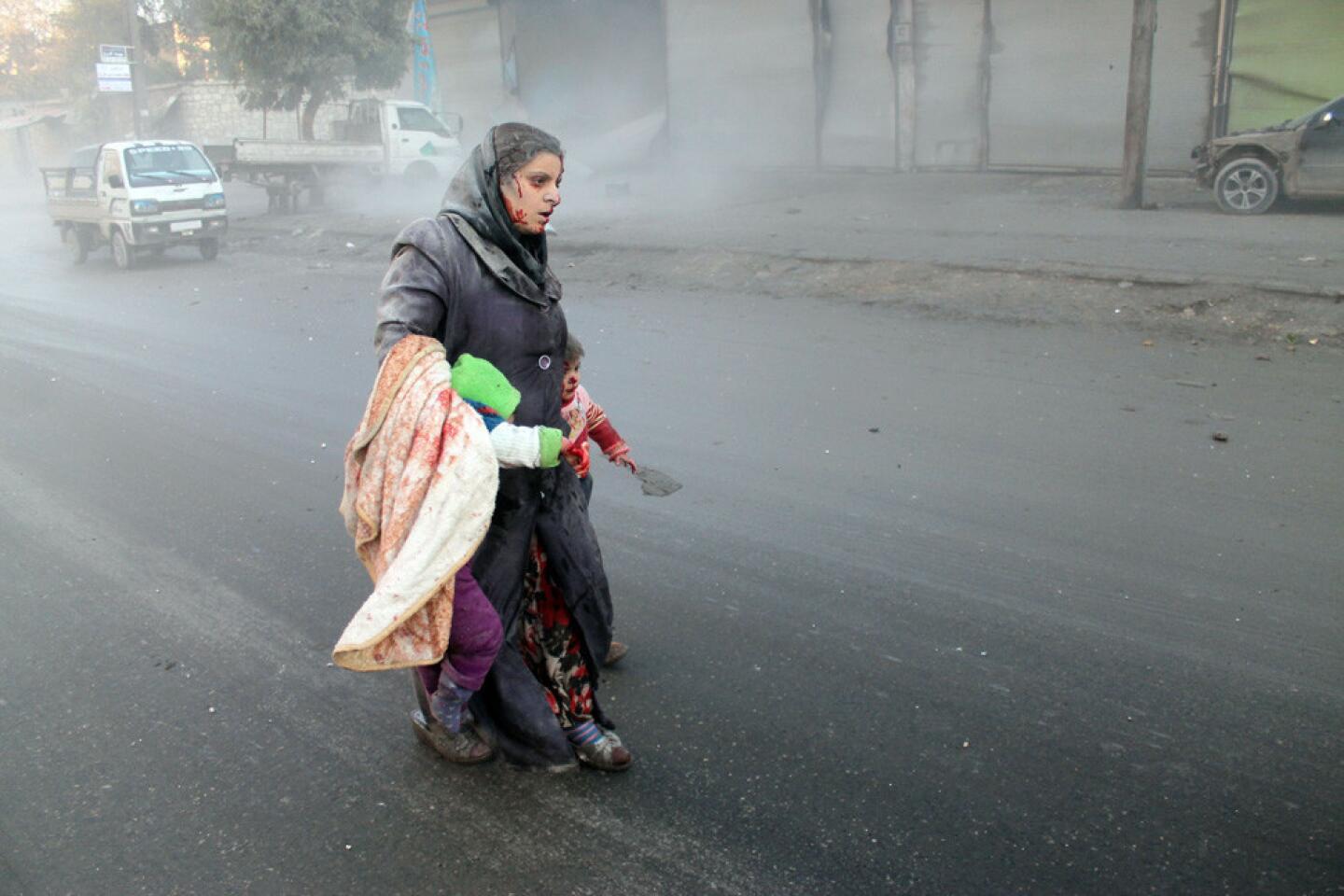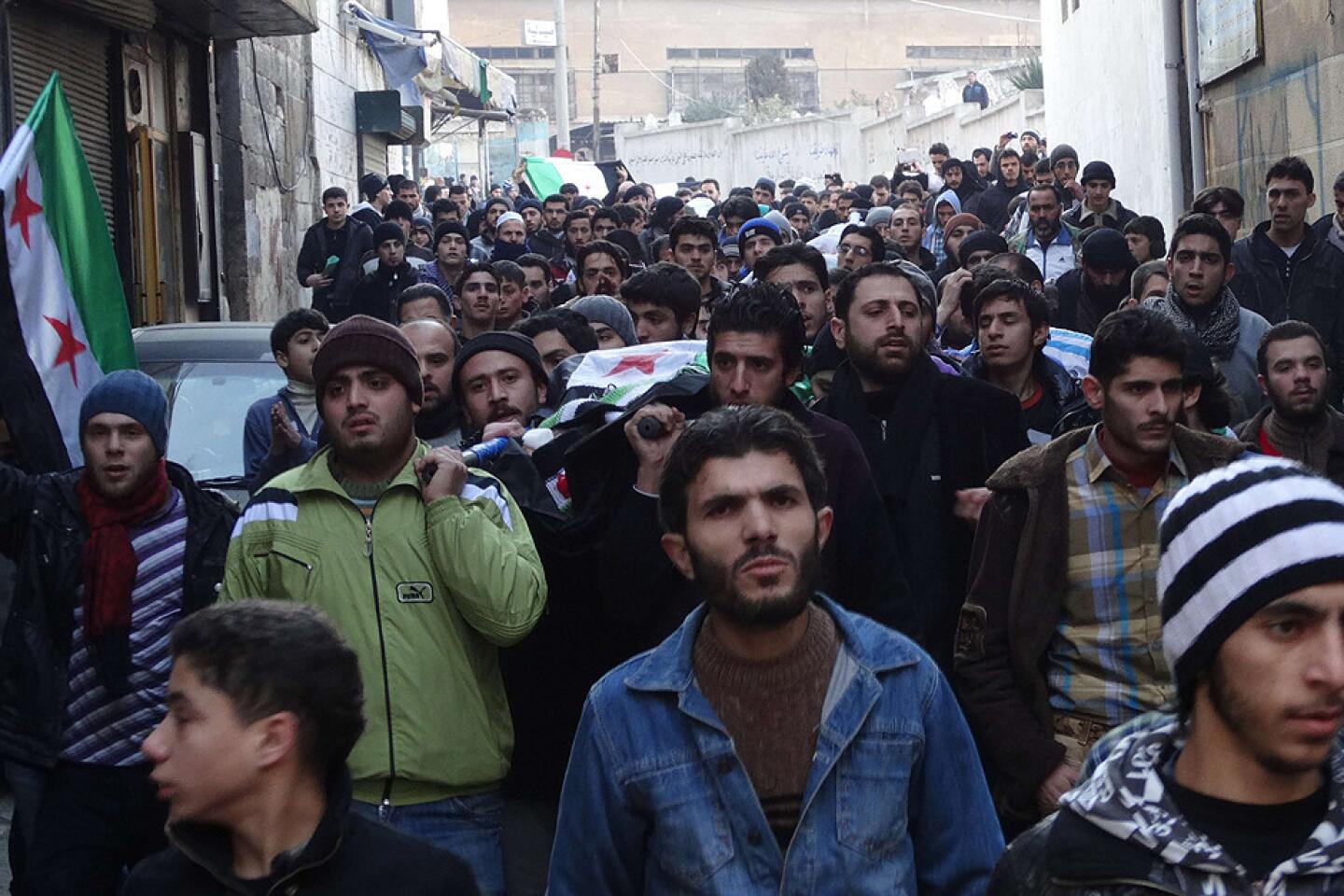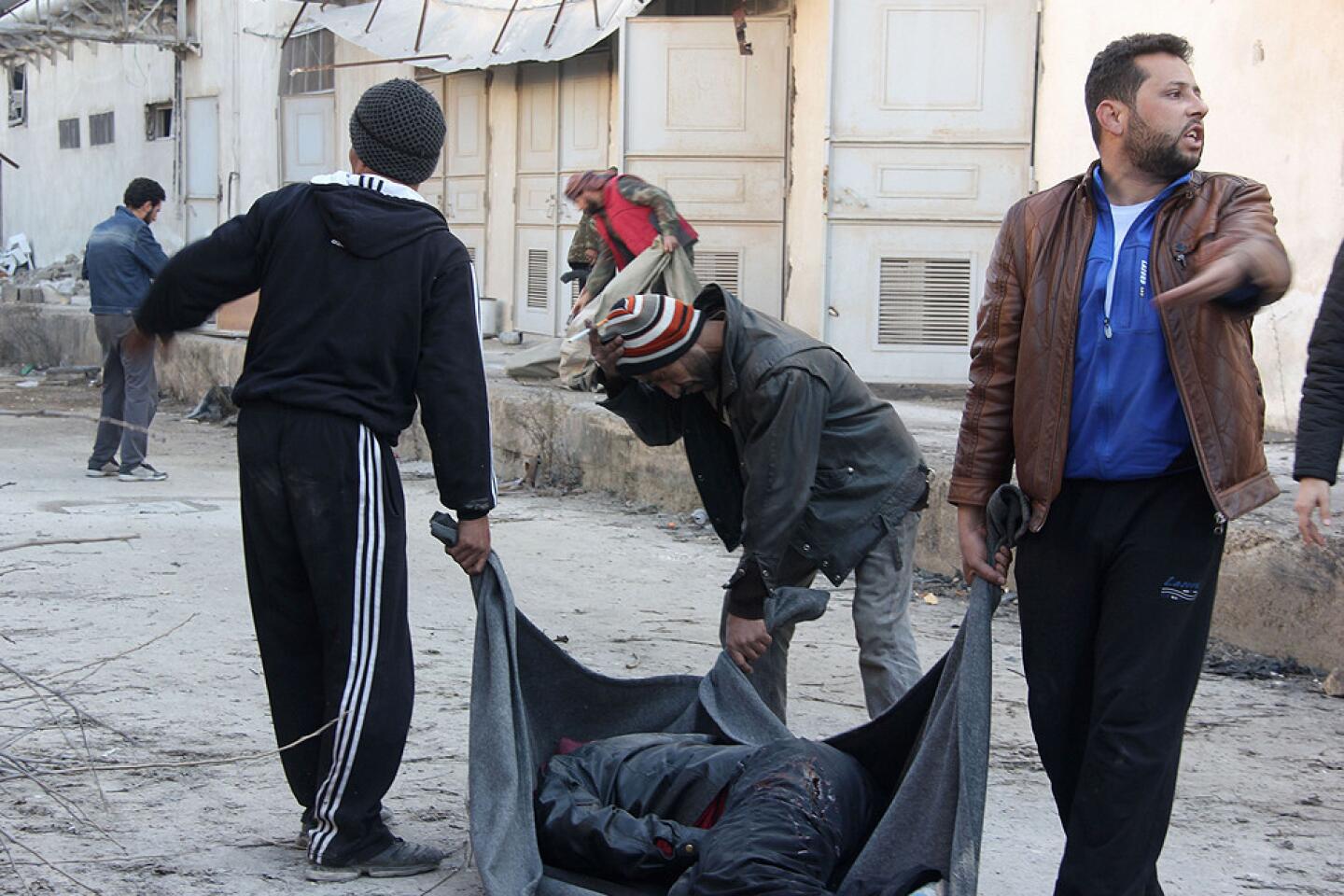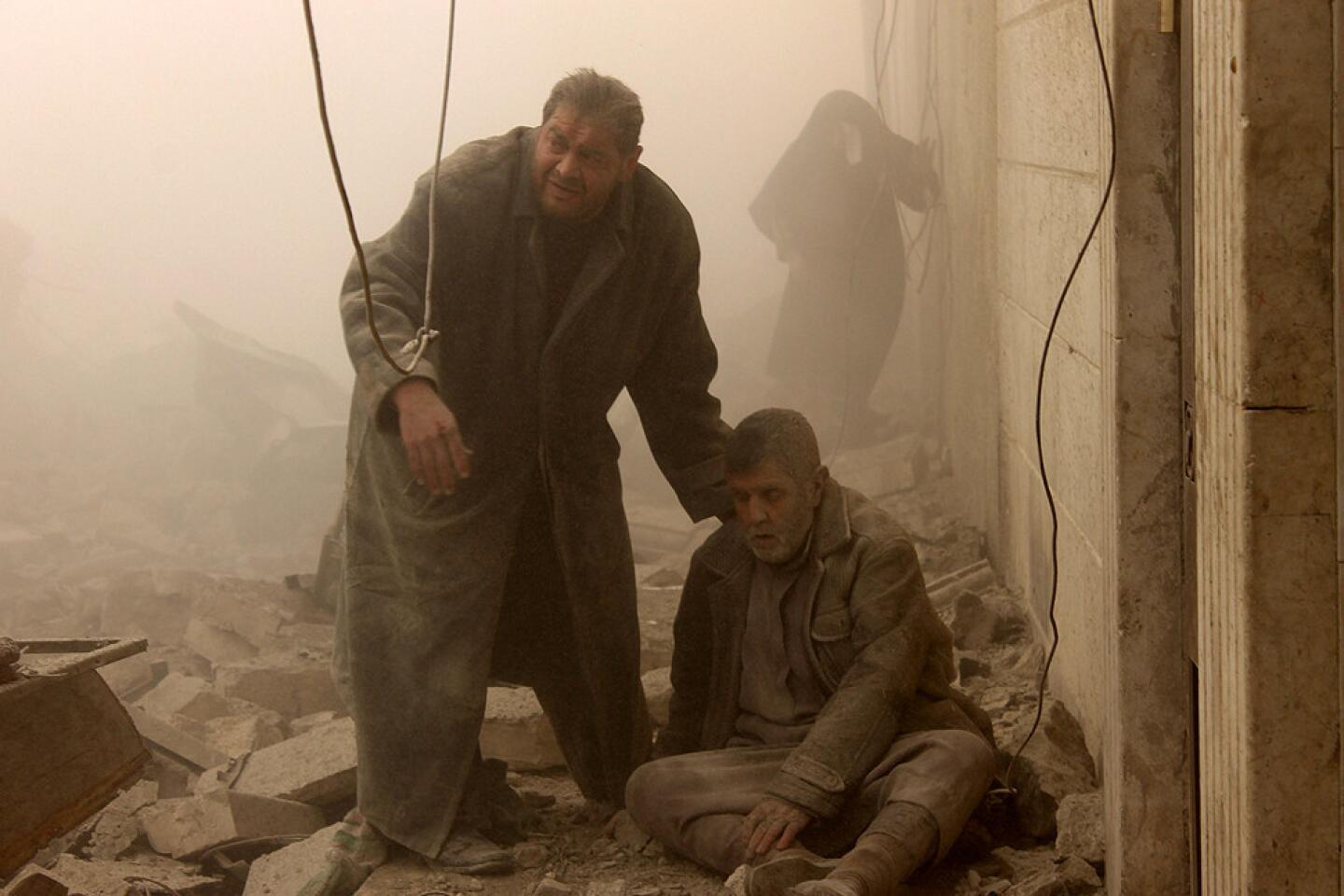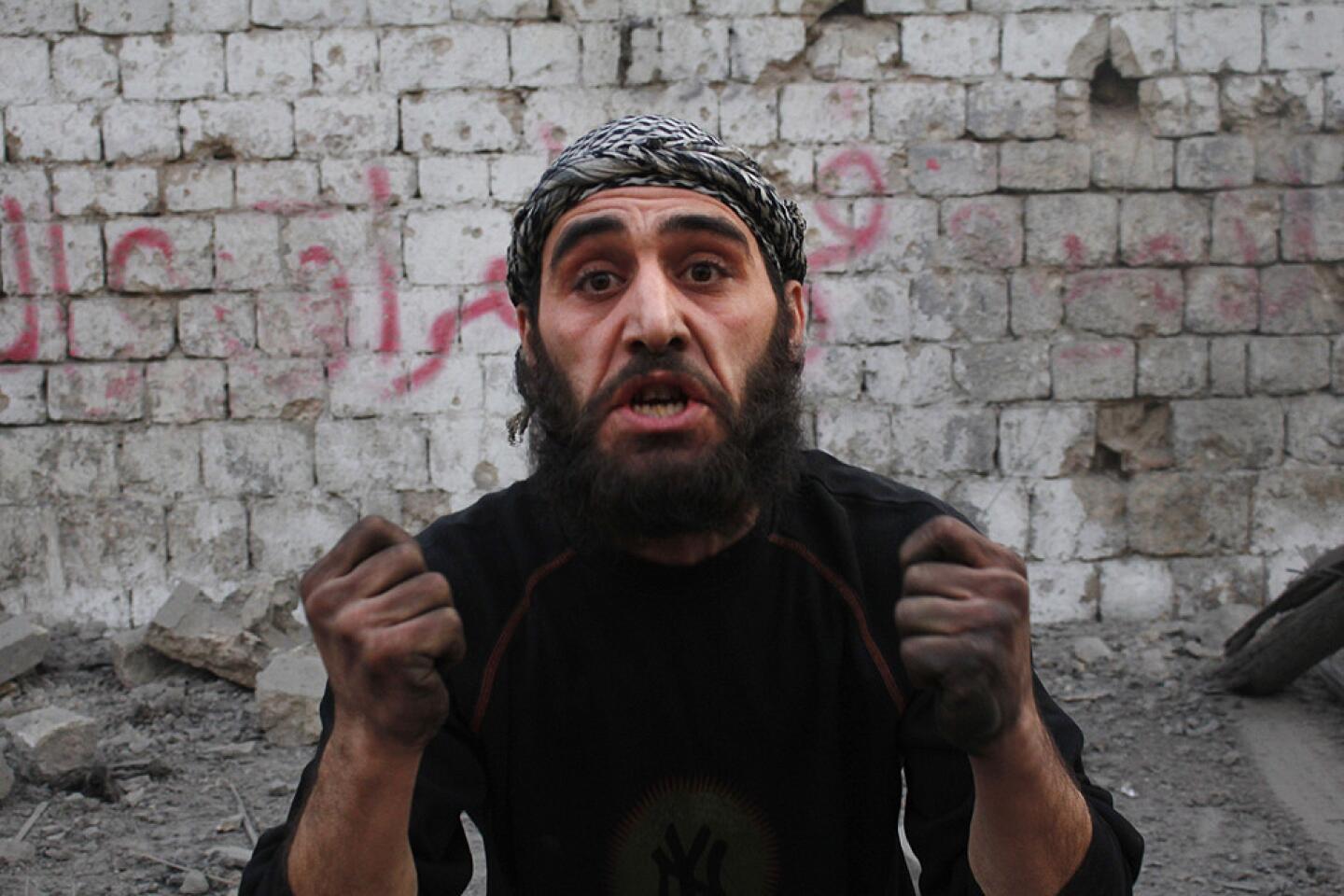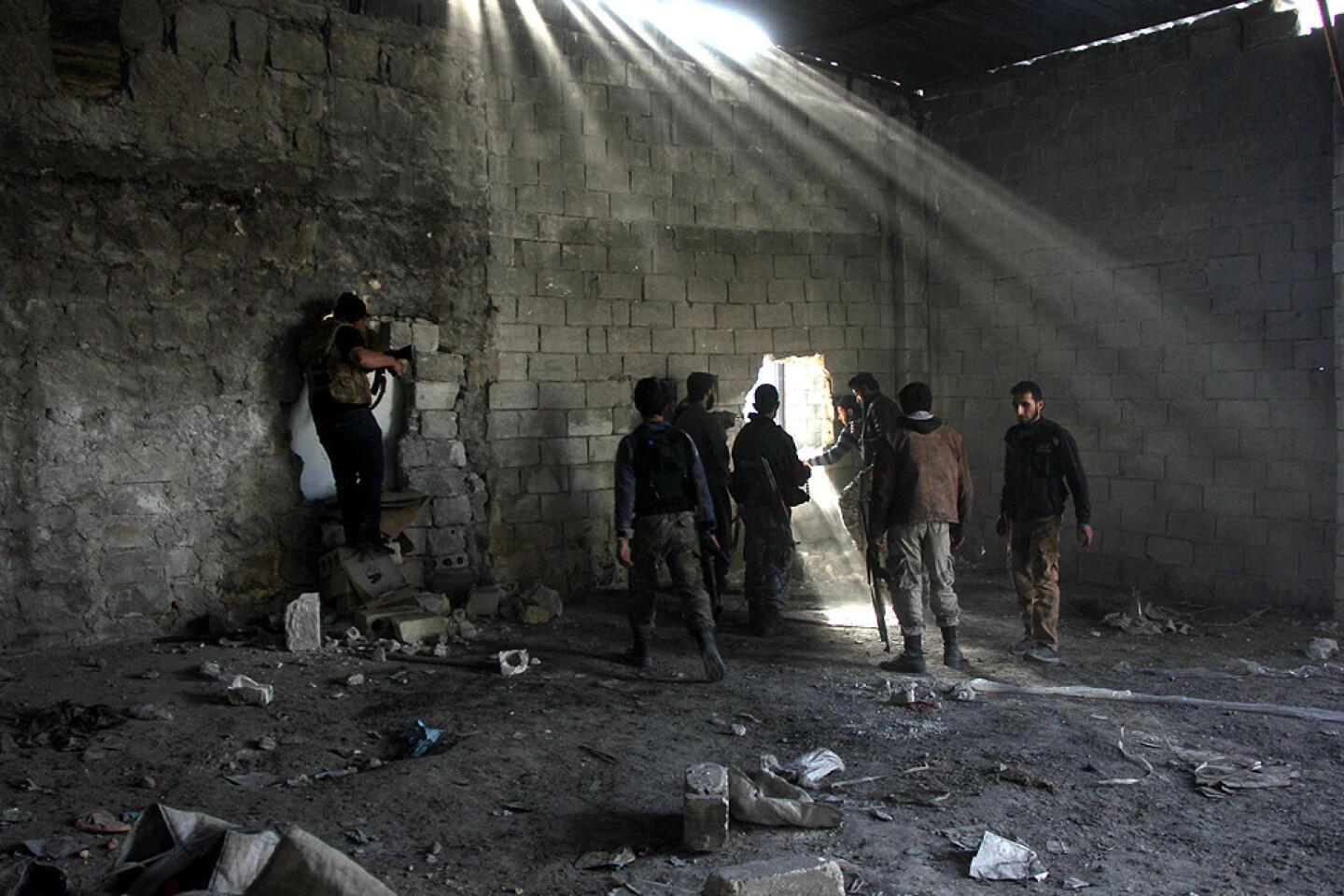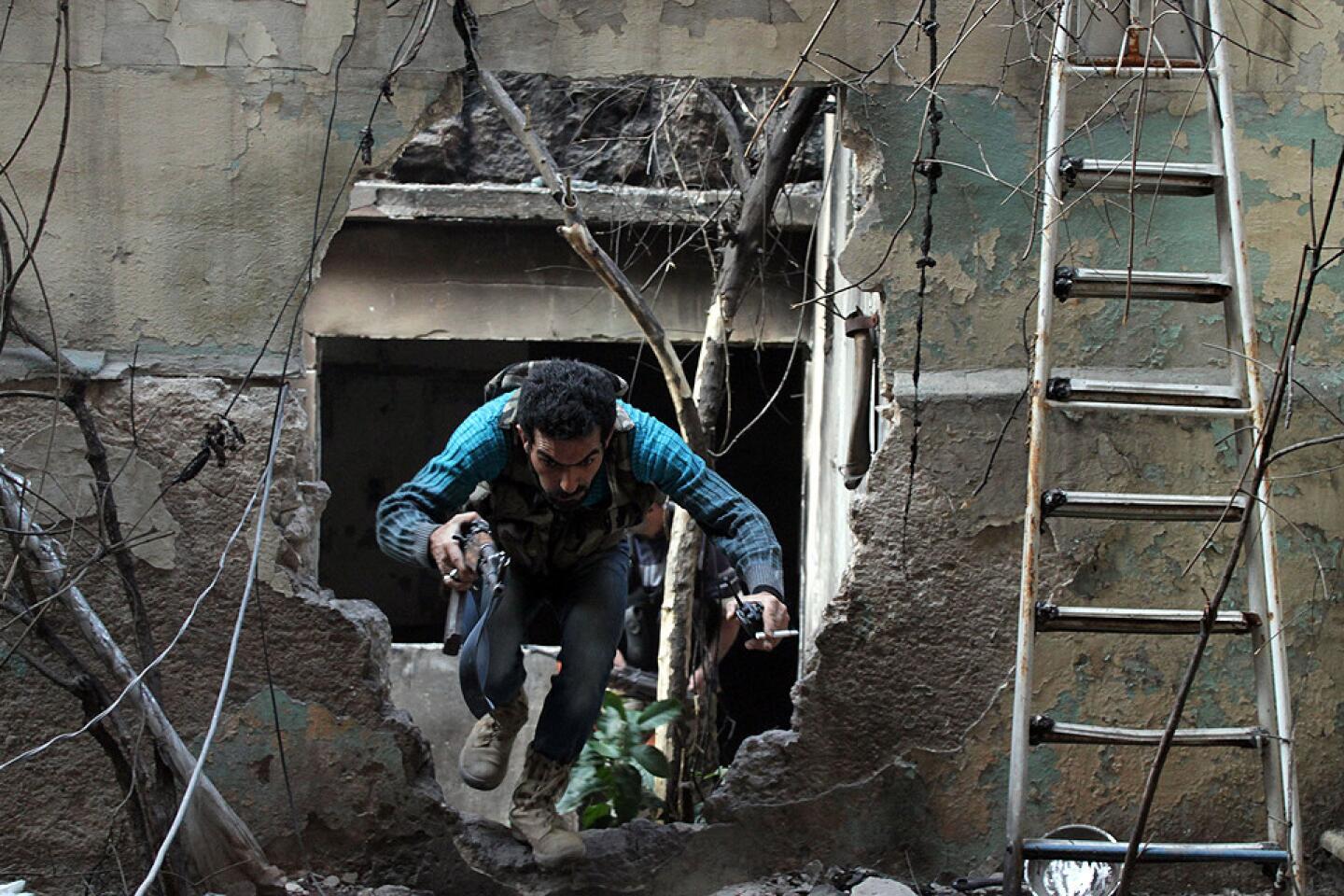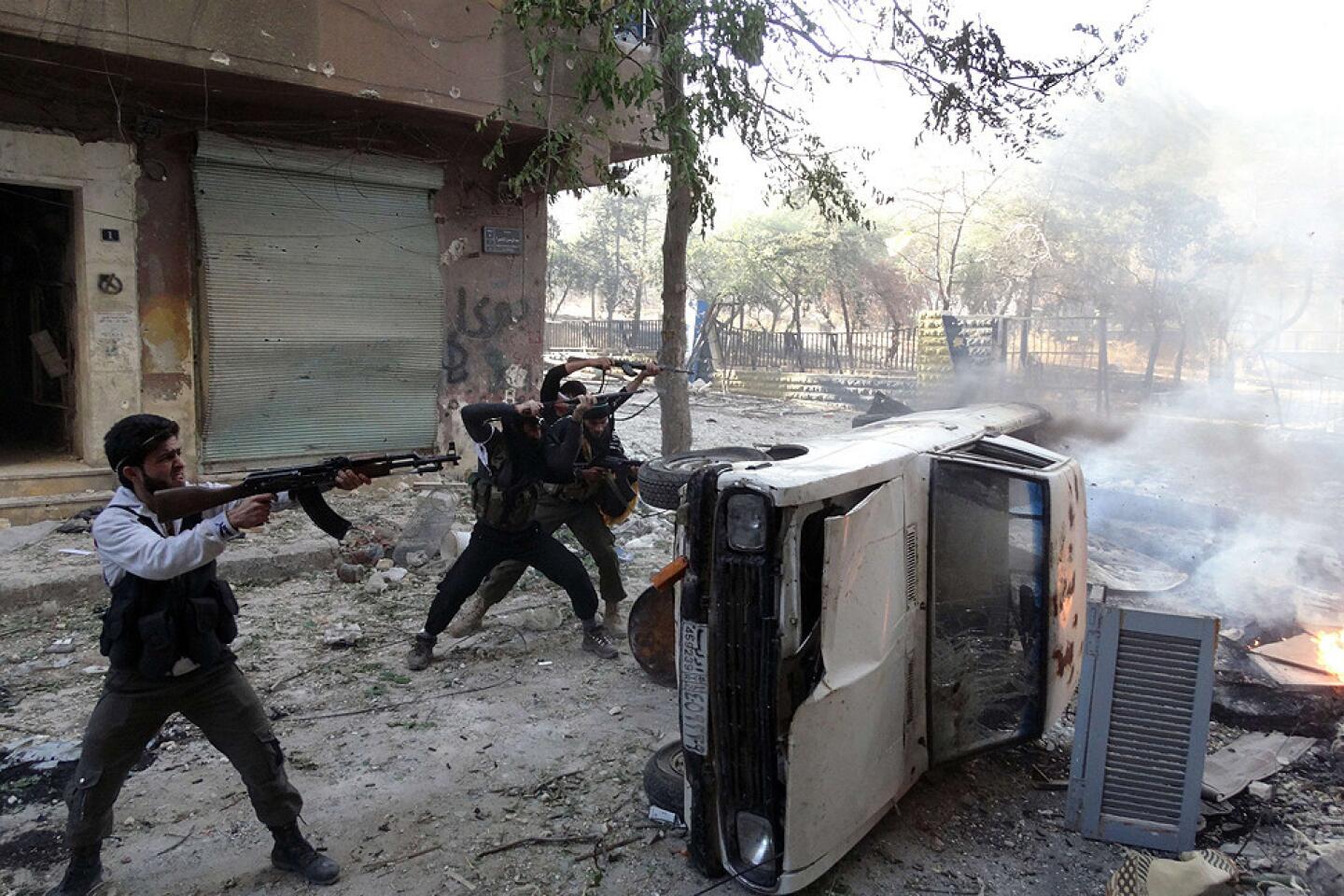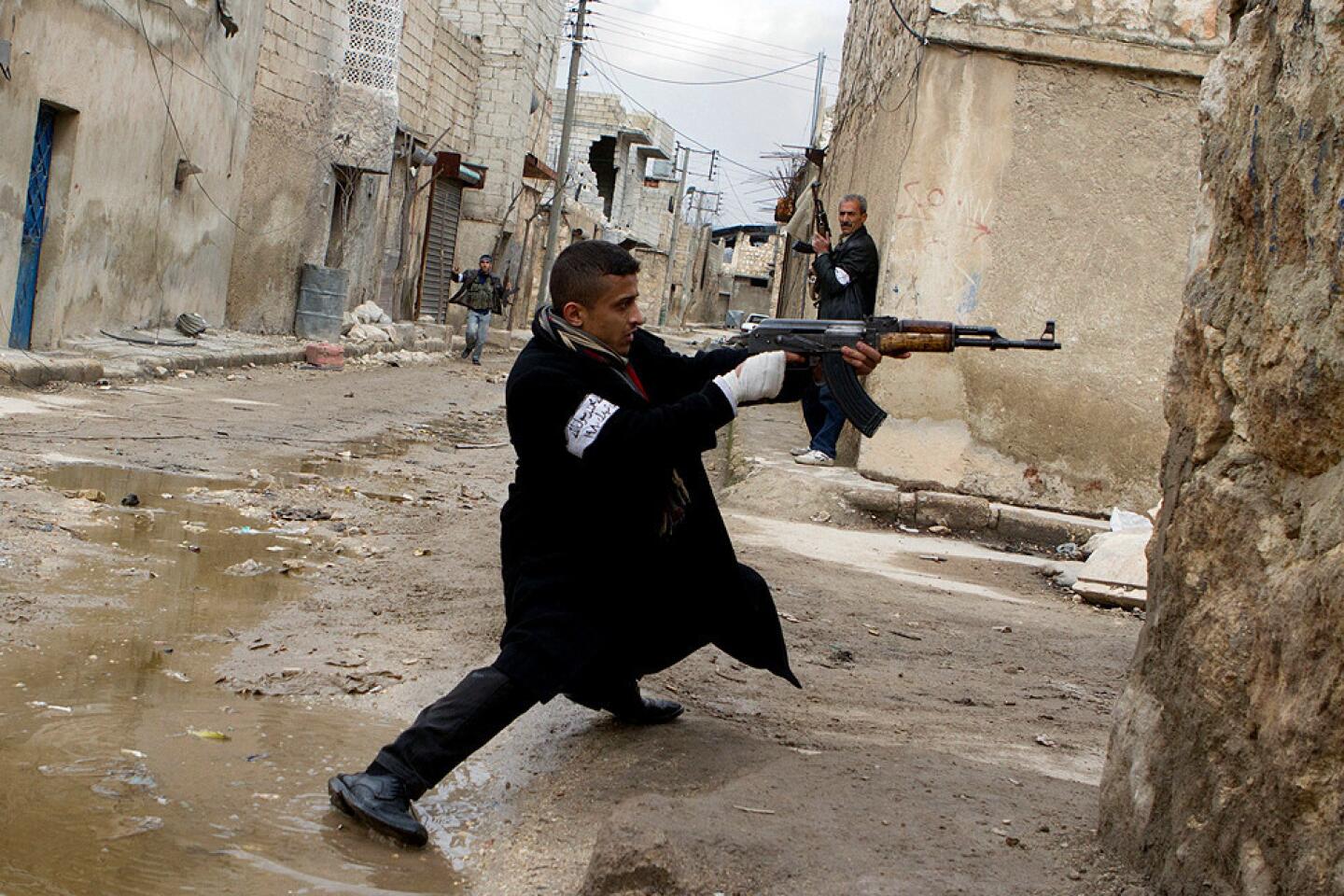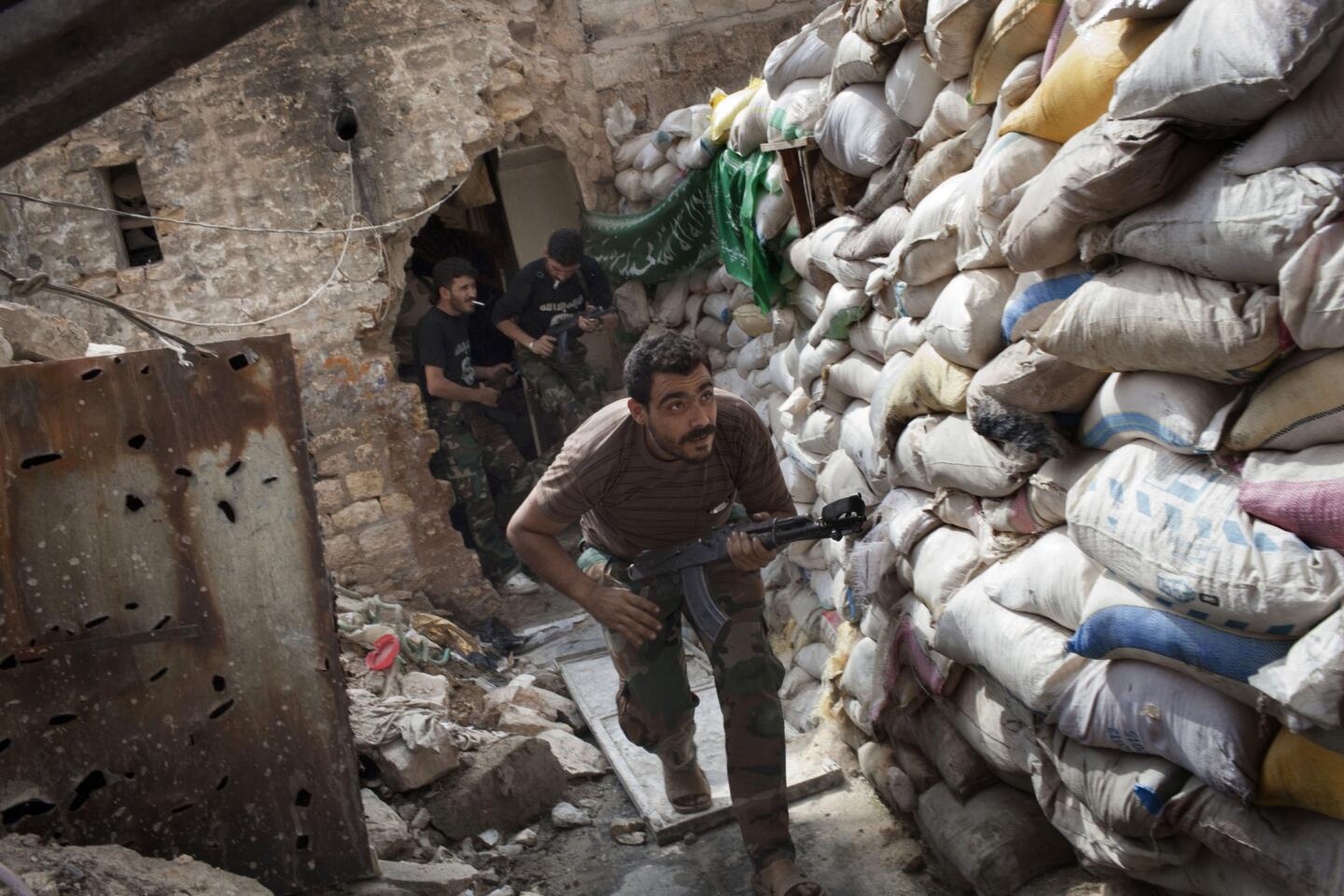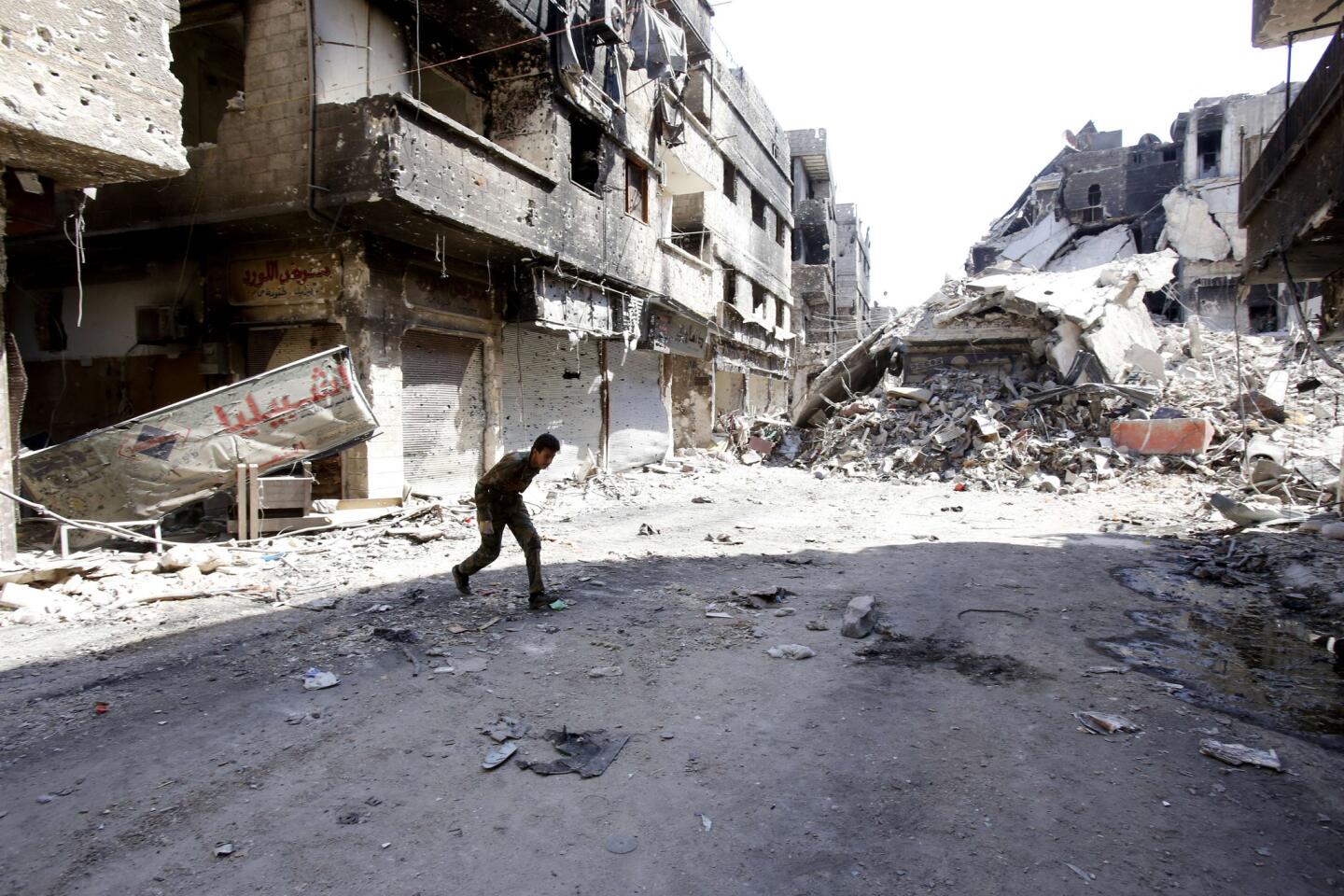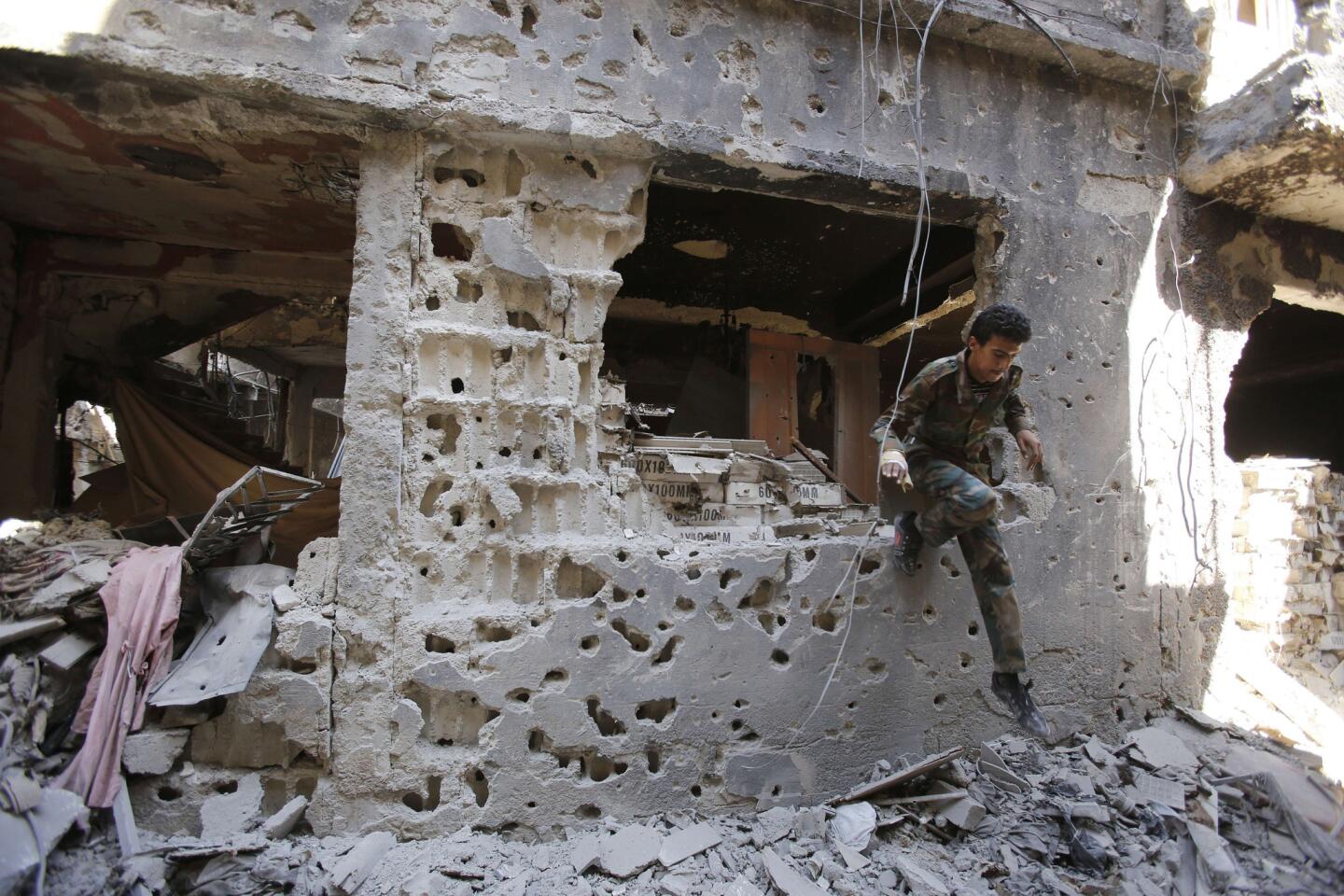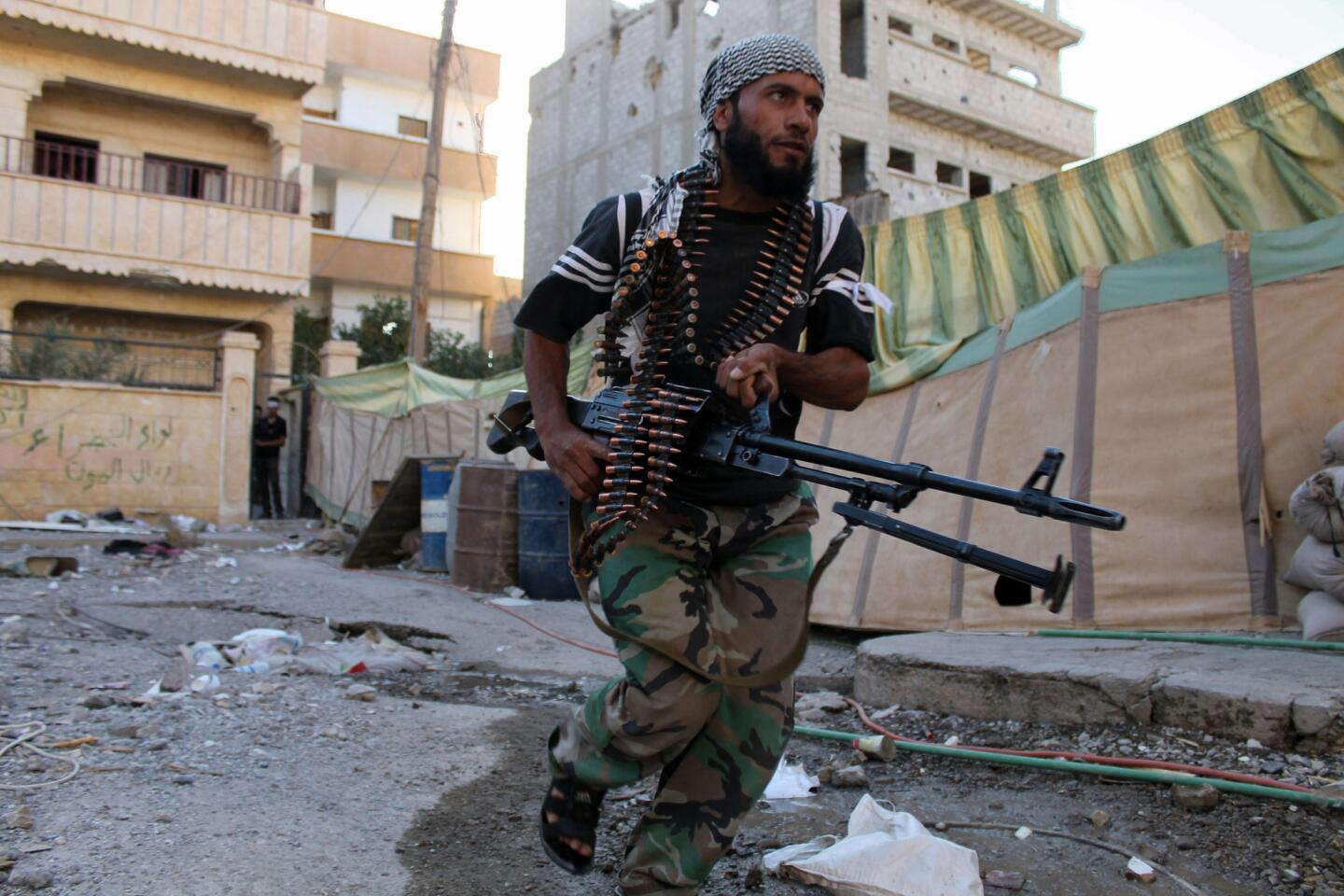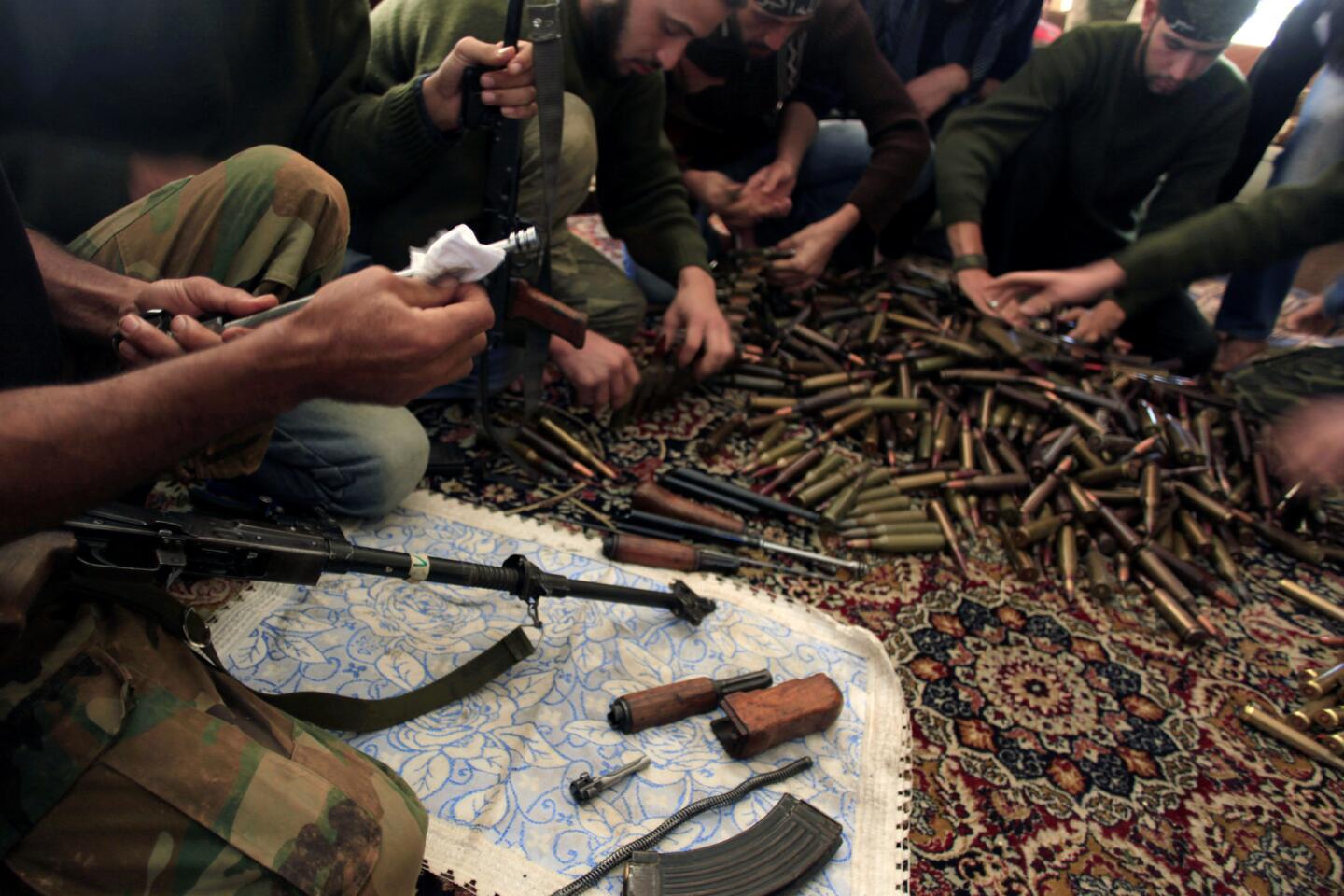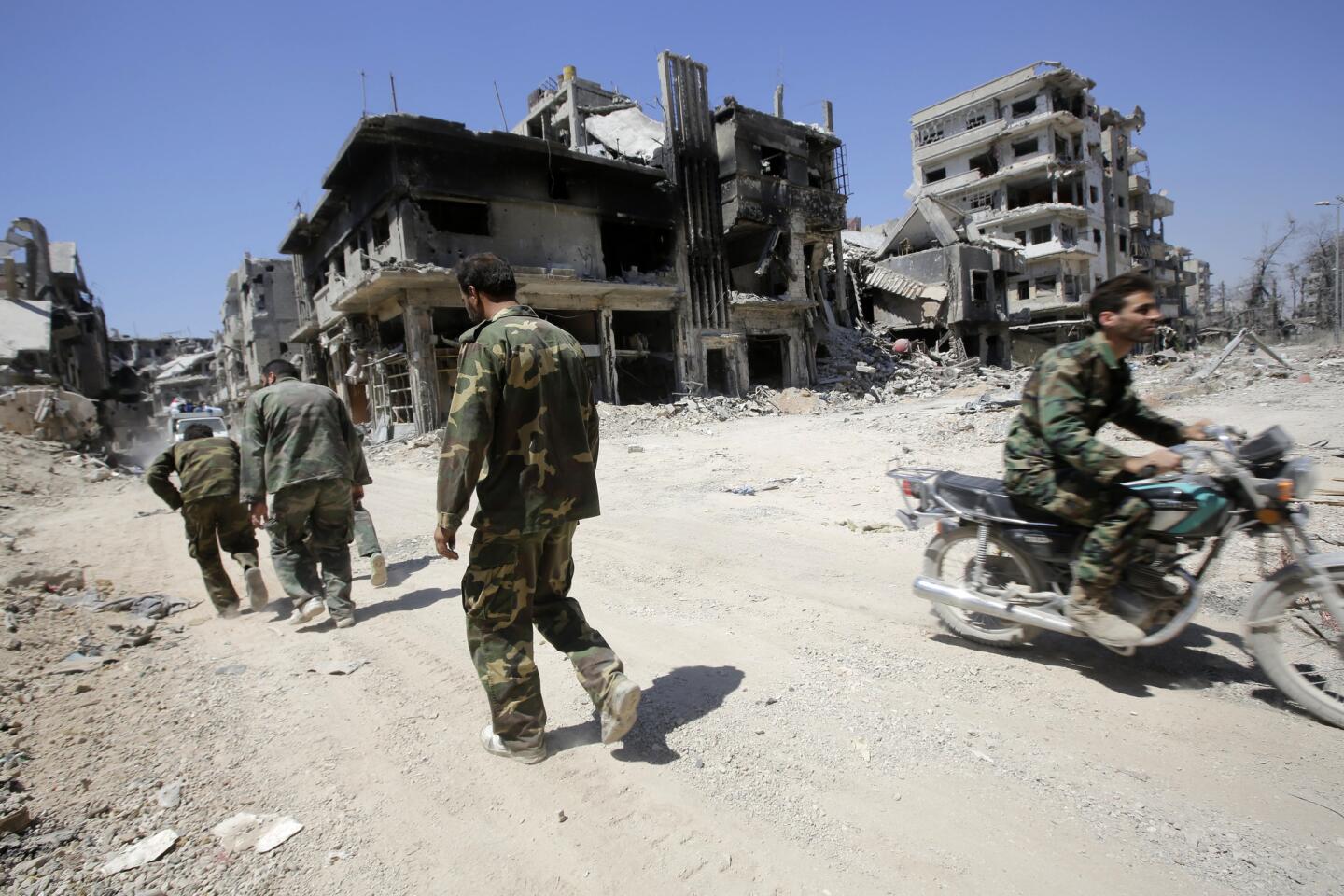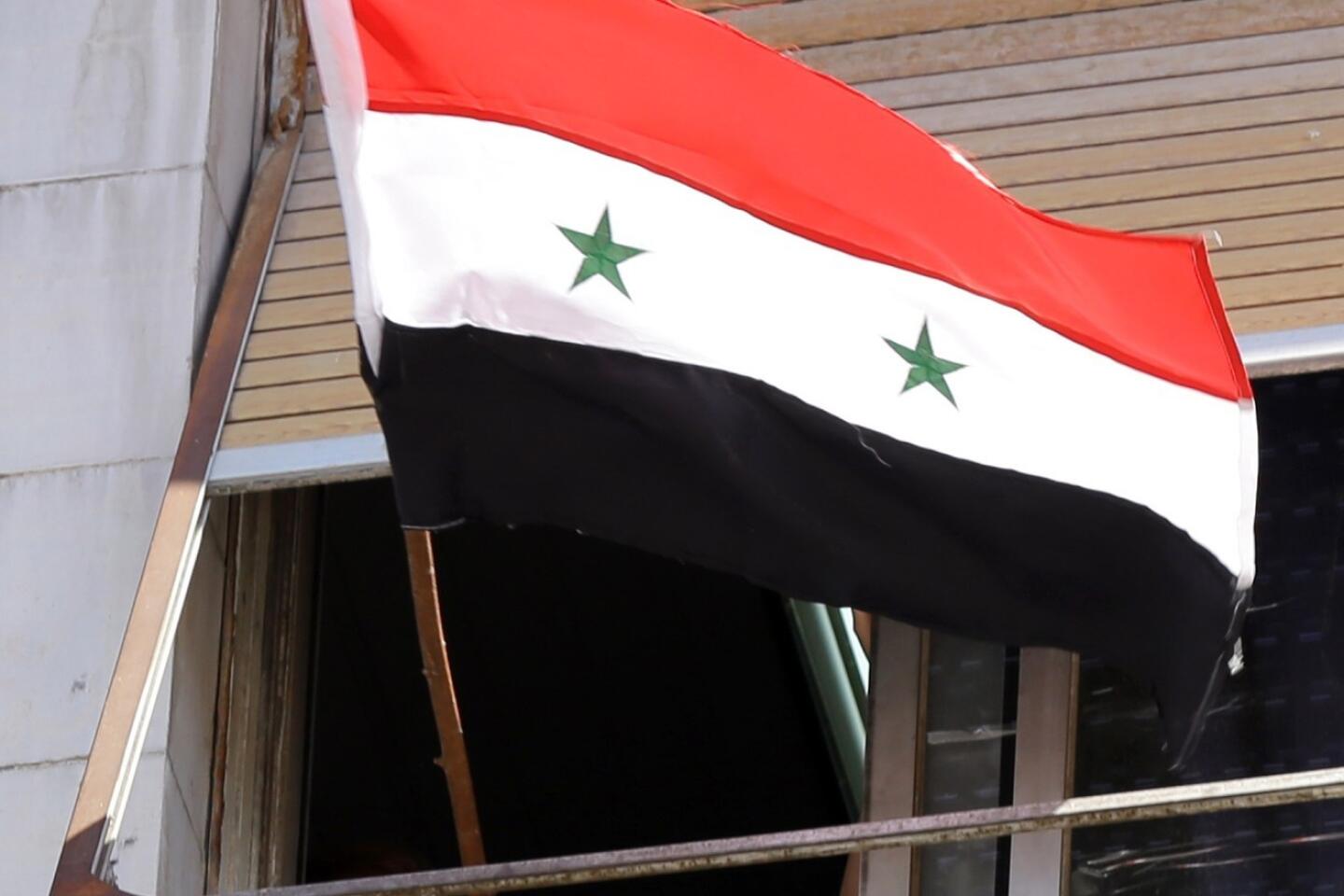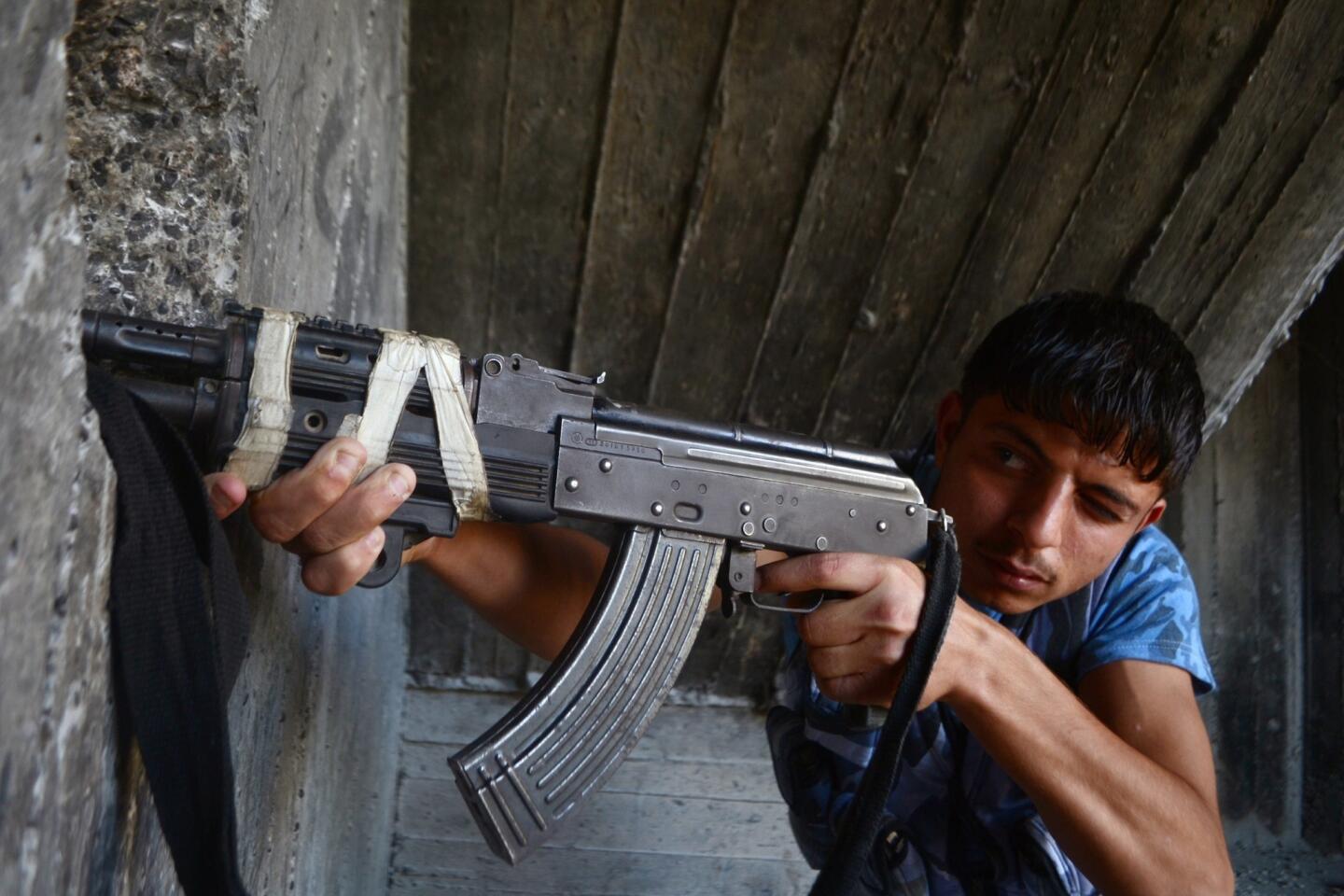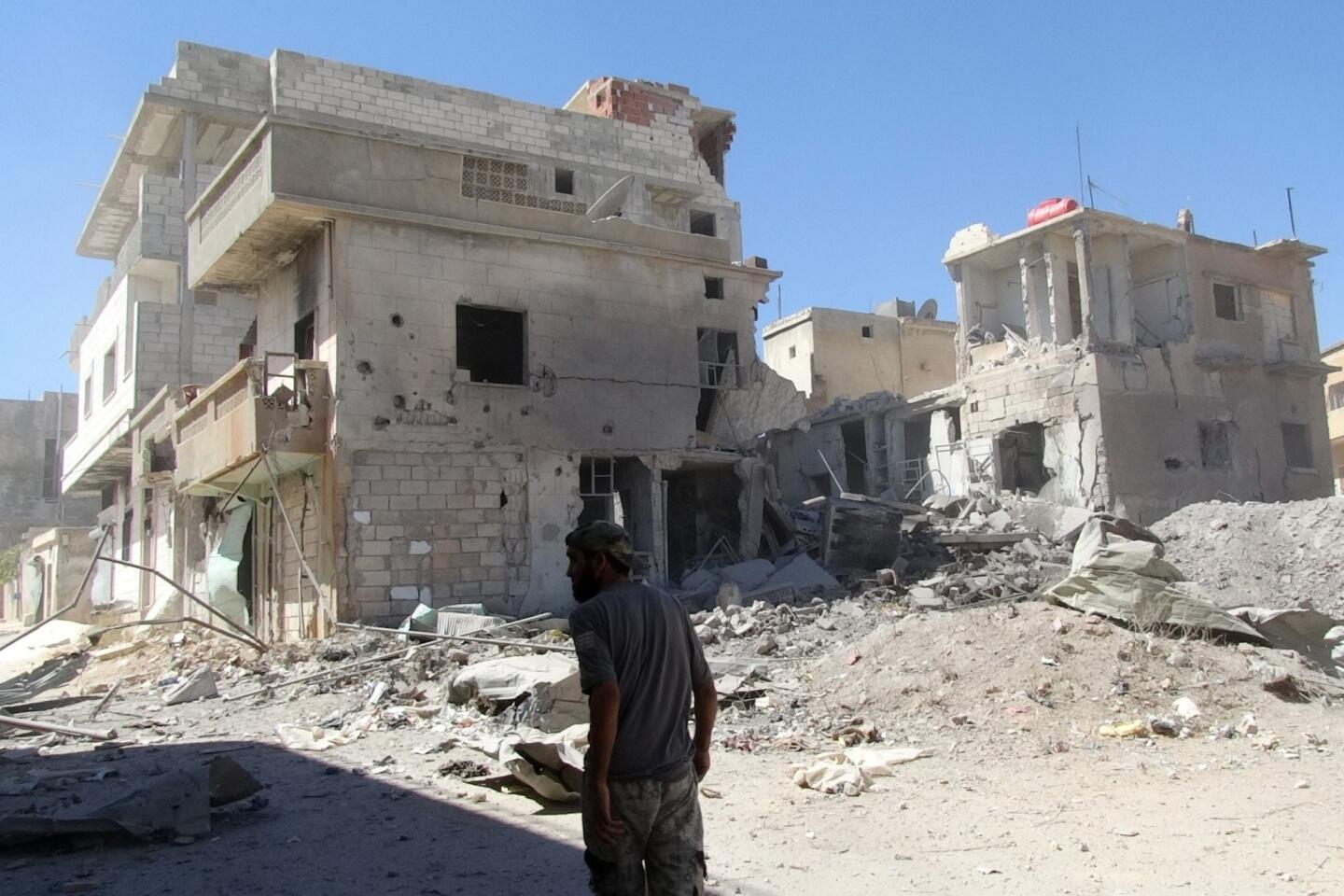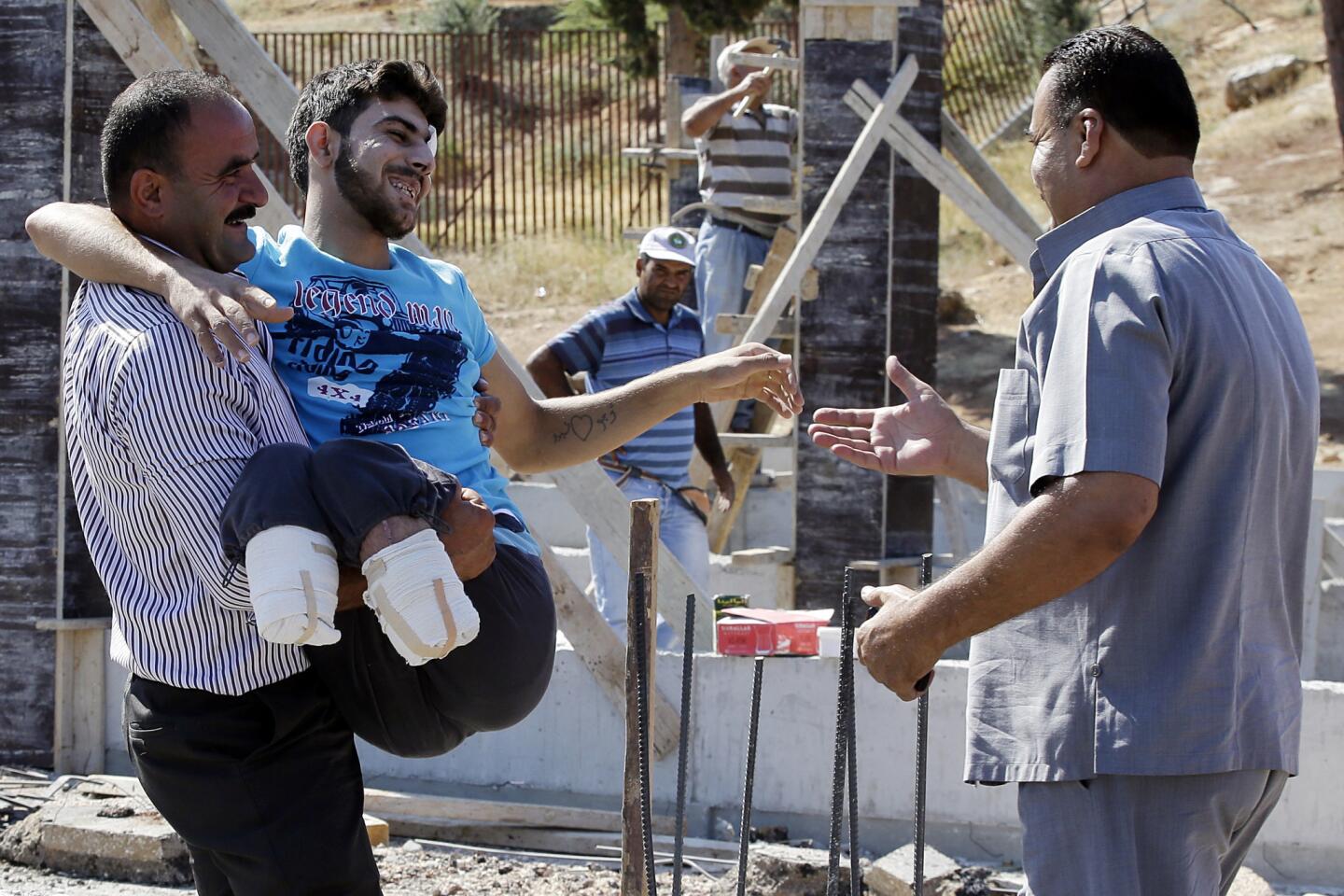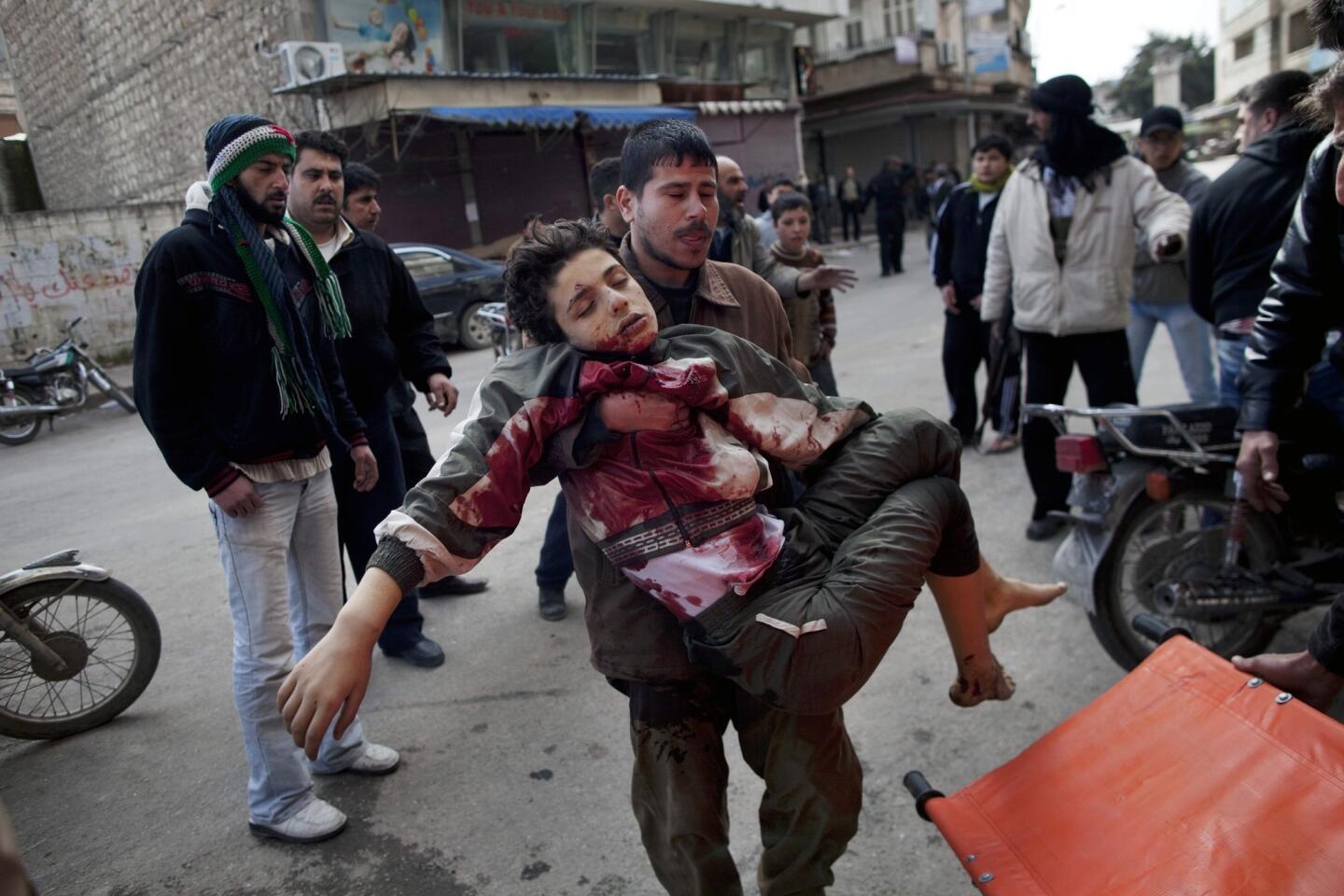Syria talks adjourn with little promise but some hope
BEIRUT — Long-anticipated Syrian peace talks adjourned Friday in Switzerland without a major breakthrough but with muted optimism that a negotiation process had finally been launched after nearly three years of civil war.
After almost a week of face-to-face talks between Syrian government officials and members of the U.S.-backed opposition bloc, both sides agreed to meet again within two weeks, said Lakhdar Brahimi, the chief United Nations mediator.
“Progress is very slow indeed,” Brahimi told reporters in Geneva. “This is a very modest beginning. But it is a beginning on which we can build.”
The chief Syrian negotiator, Foreign Minister Walid Moallem, said at a news conference that the government would decide whether to participate in more talks after consultations in Damascus, the Syrian capital, with President Bashar Assad and other officials.
Although frustrated by the talks, known as Geneva II, Syrian officials were widely expected to return for another round, if largely because of pressure from Damascus’ key ally, Russia. Moscow worked closely for months with Washington to ensure that this week’s Syrian peace conference in Switzerland took place.
Intense international pressure finally brought both sides to the bargaining table, despite deep disagreements between the two camps and a split in the fractious opposition about the utility of the talks. Neither side wants to be blamed for the collapse of the nascent process that appears to be the only hope, however faint, of ending the fighting.
Few participants or observers were surprised by the lack of a quick fix in negotiations designed to craft a political solution to a conflict that has left tens of thousands dead and sown instability throughout the Middle East.
“There was immense hope when this conference started,” Brahimi said. “I understand that already people are starting to feel disappointed. What I can tell them is that things have gone so far down, they are not going to get up from the ditch overnight.”
U.S. officials appeared pleased with the conduct of the opposition bloc, which is a largely exiled-based assemblage with little influence on fighters in Syria. The opposition team in Geneva seemed to put aside their many internal divisions in public comments and focused on initiating a process they view as inevitably leading to Assad’s removal from office.
Some expect the talks to last for months or possibly years, as has been the case in some previous peace negotiations.
Hope for so-called “confidence building” steps on issues such as the release of prisoners and delivery of humanitarian aid was also dashed. A plan to deliver food and other supplies to the besieged residents of the Syrian city of Homs has floundered amid mutual distrust between government and rebel forces. Some residents of the devastated city have been unable to leave to find safety.
Each side has heaped blame on the other for the humanitarian crisis unfolding in Syria, where more than 9 million people are said to be in urgent need of aid. More than 2 million Syrians have fled the country since the conflict began in March 2011.
The Geneva talks were expected to be discussed later Friday in Munich at a security conference attended by U.S. Secretary of State John F. Kerry, Russian Foreign Minister Sergei Lavrov and U.N. Secretary Gen. Ban Ki-moon. Future discussions are also expected in the U.N. about the nation’s deteriorating humanitarian conditions.
As the talks unfolded, Washington criticized Syria for not moving quickly enough to assure destruction of its chemical arms stockpiles, as mandated in a deal brokered last year by Russia and the United States. Syrian officials cite security concerns for the delay, and the issue did not appear to be a factor in the Geneva negotiations.
The opposition bloc viewed Geneva II as a means of forcing Assad out of office through implementation of a previous Geneva accord hammered out by world powers, including the United States and Russia. The Syrian government has said Assad’s future is not on the table.
Once the talks ended, both sides were quick to take rhetorical shots at their rivals.
The Syrian foreign minister lashed out at the rival delegation as U.S. pawns who were “immature” and not fully representative of the opposition. “They acted as if we had wanted to come here for one hour and hand over everything to them,” Moallem told reporters in Geneva. “It’s indicative of the illusions they are living under.”
The Syrian government representatives were incensed by reports during the conference that the U.S. Congress had approved clandestine funding for arming so-called “moderate” rebel factions, deemed “terrorists” by Syrian authorities. Washington said it was “ludicrous” to allege that the United States was funding terrorists.
Opposition representatives repeatedly accused the government side of trying to shift discussions away from the issue of a transfer of power — one of the stated aims of the conference — to the theme of fighting terrorism.
“The regime started this armed conflict” and has now been “forced to negotiate,” said Louay Safi, an opposition spokesman, who noted in a news conference in Geneva that the uprising began with peaceful protests. “Had the regime responded peacefully, there would have been no conflict.”
The Syrian government maintains that peaceful protests soon morphed into armed rebellion as part of an “international conspiracy” backed by the United States and its allies, including Turkey and Saudi Arabia.
The Syrian conflict has indisputably become a proxy war pitting Damascus and its allies, including Russia and Iran, against opposition forces supported by the United States and its allies. The war’s international dimension has complicated efforts to bring any kind of an end to the fighting.
Special correspondent Alexandra Sandels in Beirut contributed to this report.
More to Read
Sign up for Essential California
The most important California stories and recommendations in your inbox every morning.
You may occasionally receive promotional content from the Los Angeles Times.
